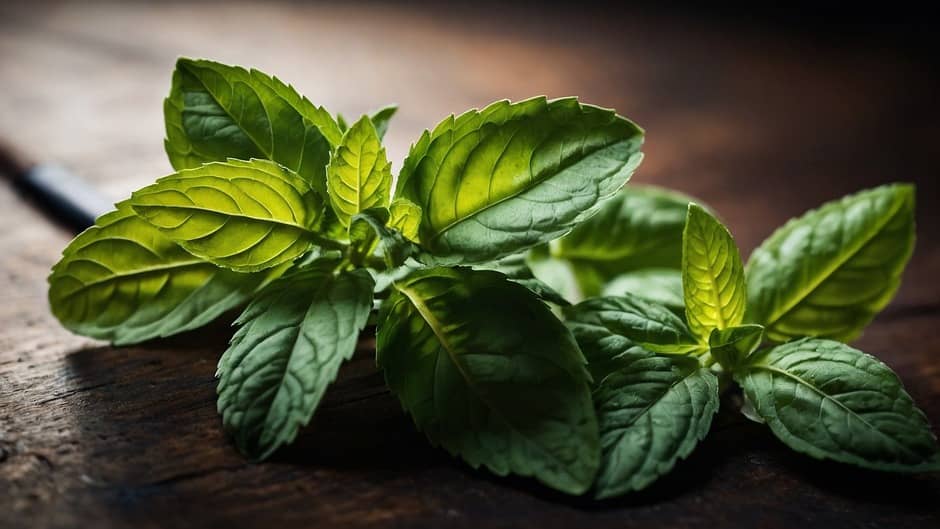Table of Contents
- Apple Cider Vinegar for Hair
- Baking Soda for Hair Health
- Washing Your Hair With Apple Cider Vinegar and Baking Soda
- Benefits of Using Apple Cider Vinegar and Baking Soda on Your Hair
- Potential Harms of Using Apple Cider Vinegar and Baking Soda on Your Hair
- How to Apply Apple Cider Vinegar and Baking Soda to Your Hair?
- How It Can Help Your Hair?
Apple Cider Vinegar for Hair
First, let’s talk about apple cider vinegar, or ACV as it is commonly called.
Perhaps you’ve heard others raving about it, but what all the excitement is about?
When it comes to hair care, apple cider vinegar has been a go-to remedy for many parents.
It’s no longer just a modern problem either—some really fascinating technological advancements are at its core. What does it do, then? One thing about apple cider vinegar that is well known is its acidity.
That would sound a little strange, though—why would we need to apply anything acidic to our hair?
But listen to me carefully.
Let’s figure out benefits of washing your hair with apple cider vinegar.
Our hair and scalp naturally have a pH level, but occasionally, this balance can be upset by things like daily living, pollution, or even goods.
Your hair may become frizzy, dry, or just generally unmanageable when that occurs.
Because of its acidic properties, apple cider vinegar helps restore pH stability to normal, leaving your hair looking glossier and smoother.
ACV also helps with buildup, which is another concern.
You are aware that no matter how often you wash your hair, after a while it can start to feel greasy or heavy?
That’s usually caused by mineral buildup in the water or residue from hair products.
By cutting through that buildup and leaving your hair feeling clean and fresh, apple cider vinegar functions as a mild cleanser.
However, and this is crucial, you were instructed to use caution when handling it.
Since apple cider vinegar is rather thick on its own, you don’t need to pour it on your hair right away. The most that people can do is dilute it with water, using about one part vinegar to two or three parts water.
After shampooing, you can use this mixture as a last rinse. Let it sit for a few minutes before rinsing it off.
Even just carrying out this task once a week could have a significant impact.
Even if it truly helps a lot of people, it is no longer appropriate for everyone. In the event that you have sensitive skin or a scalp condition, you may need to conduct a patch test beforehand or consult with a dermatologist or other knowledgeable individual.
Getting your scalp irritated is the last thing you need.
Also Read – What Fruits Are Good For Your Skin And Hair (2024)
Baking Soda for Hair Health
It’s time to talk about baking soda. Yes, the same substance you need to bake sweets or keep food fresh in the refrigerator.
As it happens, baking soda has also made its way into the hair care industry. But, you should use it carefully, just like you would with apple cider vinegar.
Compared to apple cider vinegar, baking soda is on the lower end of the pH scale because it is an alkaline chemical. Baking soda has alkaline qualities, which make it an excellent cleanser.
Because of its exceptional ability to dissolve grease and oil, some people use it as a natural shampoo substitute.
If you’ve gone a little too long without washing your hair, or if you used too much styling product, baking soda can assist.
Your hair may feel genuinely clean after you apply a paste made from a modest amount of baking soda and water, which could remove all of the oil and buildup.
Here’s where you need exercise caution, though, because while baking soda works well to remove oils, using it too frequently could make it too harsh.
To stay healthy, our hair needs a small amount of herbal oils, and using too much baking soda can cause dryness, breakage, and a rough texture. Therefore, start out slowly if you’re thinking about trying baking soda.
Perhaps use it as a deep-cleaning solution as soon as every two weeks instead of replacing your shampoo on a regular basis.
Similar to using apple cider vinegar, it’s a good idea to follow up with a conditioner or a rinse of diluted apple cider vinegar to get your hair’s pH back to normal.

Washing Your Hair With Apple Cider Vinegar and Baking Soda
You know, there are so many products out there that claim to be able to take care of our hair in a variety of ways.
However, there are occasions when it’s excellent to get back to the basics and make use of straightforward herbal ingredients that you may already have in your kitchen.
For a long time, people used things like baking soda and apple cider vinegar (ACV) to wash their hair. However, how exactly do those operate, what are the advantages, and what should you watch out for?
Let us have a discussion about it.
Benefits of Using Apple Cider Vinegar and Baking Soda on Your Hair
Let’s start with the most interesting part: the reasons you might want to try washing your hair with baking soda and apple cider vinegar.
1. Natural Cleanser
Another well-known natural cleanser is baking soda. Because it is very slightly alkaline, it may help break up oil and particles in your hair and scalp, leaving you feeling clean and shiny without the harsh chemicals found in many shampoos.
2. Balances Scalp pH
Our scalp typically contains a pH of 4.5 to 5.5, which is mildly acidic in nature. If baking soda is used alone, its more alkaline nature may cause pH disruption. However, when combined with apple cider vinegar, which has an acidic pH, the scalp’s natural equilibrium can be restored.
This is important because healthier hair and scalp might result from a pH balance.
3. Adds Shine and Softness
Your hair could become silky and bright with apple cider vinegar. Your hair seems shinier because it replicates more light because it smoothers the cuticles. Additionally, it might help untangle hair, giving it a smoother texture.
4. Reduces Dandruff
Perhaps apple cider vinegar could help if you battle dandruff. Because of its acidity, the yeast that causes dandruff may find the environment to be less comfortable. Frequent use could potentially help keep those flakes at bay.
Also Read – Does Tea Tree Oil Promote Hair Growth? – Foods That Promote Healthy Hair And Skin (2024)
5. Environmentally Friendly
Apple cider vinegar and baking soda are an excellent way to reduce your environmental footprint. These ingredients are biodegradable and exclude any harsh chemicals that might be found in commercial shampoos and conditioners.
Potential Harms of Using Apple Cider Vinegar and Baking Soda on Your Hair
Even if those herbal ingredients might be very beneficial, there are several things you need to keep in mind. Their drawbacks are no longer absent from them.
1. Over-Drying
Because baking soda is alkaline, it can be rather unpleasant if used excessively or too frequently. If your hair is already on the dry side, it may deplete it of its natural oils, leading to dryness and brittleness.
2. Scalp Irritation
If not utilized correctly, baking soda and apple cider vinegar can both cause discomfort to the scalp. You could like redness, itching, or a burning feeling if your scalp is sensitive. It is imperative that you thoroughly dilute any ingredients before applying them to your hair.
3. Damage to Hair
Overuse of baking soda can eventually cause damage. It’s possible that your hair would become weaker and that you would notice more breakage or chopped ends. Moderation is key because those ingredients are potent and anything less is essentially excess.
4. Smell
Even though the scent of apple cider vinegar usually goes away as your hair dries, some people find it to be a little unpleasant. If you find that you no longer enjoy the smell, this is most likely a negative for you.
How to Apply Apple Cider Vinegar and Baking Soda to Your Hair?
If you’re considering trying this, here’s how to do it correctly and successfully.
1. Start with Baking Soda
One cup of water and about one tablespoon of baking soda should be combined.
Stir until all of the baking soda has dissolved. After wetting your hair, apply this aggregate to your scalp and hair, carefully massaging it in. Concentrate on the area of the scalp where dust and oil accumulate. Rinse it well with hot water after a minute or two.
2. Follow with Apple Cider Vinegar
Next, combine one cup of water with one to two tablespoons of apple cider vinegar.
Make sure to distribute this aggregate evenly throughout your hair as you pour it on. Because it can hurt, it is imperative that you avoid getting it in your eyes. After allowing it to sit for a few minutes, rinse it with cool water.
By closing the hair cuticles, the cool rinse seals in hydration and gloss.
3. Frequency
How often you need to try this virtually depends on the type of hair you have. A maximum of once per week is sufficient for most people. You might wash it twice a week if your hair is particularly oily. Remember, though, that you don’t need to use too much baking soda because it could be drying.
How It Can Help Your Hair?
Washing your hair with baking soda and apple cider vinegar can help in many ways when done right.
1. Cleaner, Healthier Scalp
This method can give you an exceptionally deep clean, which is great if your scalp tends to get greasy or if you have a lot of buildup from hair products. A healthy scalp can promote greater hair growth; an easy scalp is one that does.
2. Enhanced Shine and Smoothness
Apple cider vinegar, as we mentioned previously, smoothers the cuticles of hair, which can give your hair a shinier, softer appearance. This is the herbal way to improve the appearance of your hair that you’ve been looking for.
3. Reduced Dandruff
This practice may help those who are dealing with dandruff by creating an environment that discourages the growth of yeast that causes dandruff.
4. Eco-Friendly and Cost-Effective
Let’s not ignore the fact that this method is applicable to both the environment and your pocketbook. You’re using straightforward, natural ingredients that are far less expensive than the majority of hair products available.
Read us on Medium.




